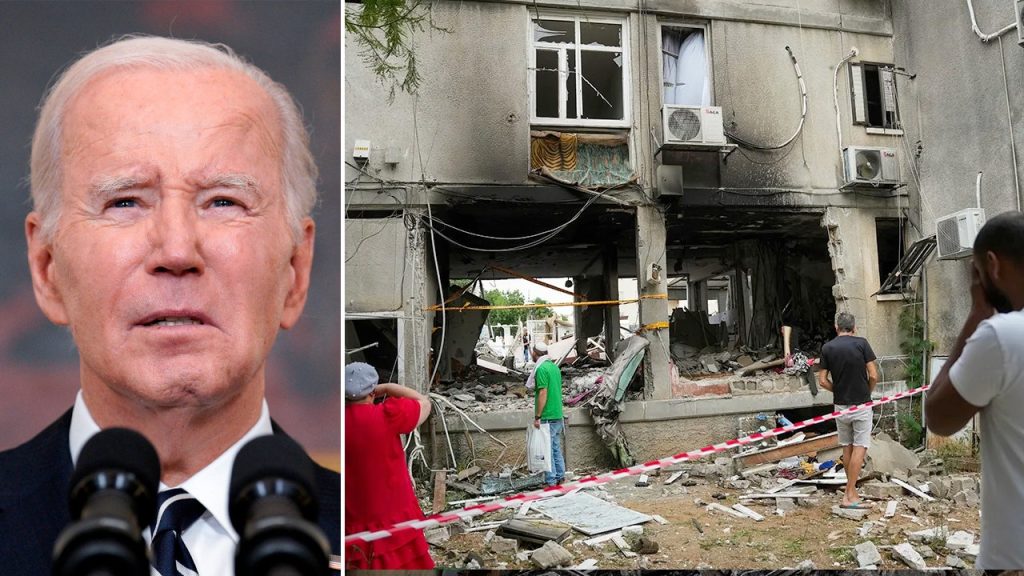The White House is committed to ensuring a Hamas surrender and is engaging in conversations with intermediary countries, such as Qatar and Egypt, to achieve this goal. U.S. officials have been pushing for a surrender, emphasizing that the conflict could end immediately if Hamas would lay down their arms. President Biden has also called for Hamas to surrender in various statements, including during his State of the Union address. Despite this, the White House is still working actively to achieve a Hamas surrender while increasing pressure on the Israeli government.
In a recent phone call with Israeli Prime Minister Benjamin Netanyahu, President Biden called for an immediate cease-fire, emphasizing the need to stabilize the humanitarian situation and protect innocent civilians in the region. The White House has stated that U.S. policy will depend on Israel’s response to humanitarian concerns in Gaza. The recent killing of seven World Central Kitchen aid workers by Israeli airstrikes has raised further concerns about the humanitarian situation on the ground in Gaza. Israel’s ongoing bombardment of Gaza, targeting Hamas, has resulted in more than 1,200 civilian deaths since the conflict began in response to attacks by the militant group on October 7.
Some experts believe that the U.S. government’s actions are signaling a loss of patience with Israel’s approach in Gaza, potentially leading to tighter controls on how U.S. resources are being used by the Israeli government. There is concern that the Biden administration’s focus on condemning Israeli actions may inadvertently embolden Hamas. While Biden has called for a Hamas surrender, some critics argue that the administration’s actions are actually empowering Hamas by pressuring Israel to hold back on ending the conflict. Additionally, there is criticism that the administration is not addressing Hamas’ role in the conflict forcefully enough.
The U.S. government’s actions have raised questions about potential shifts in global support and the Netanyahu government’s calculations regarding its military backers. Some experts believe that the focus should be on Israel’s actions in Gaza, rather than solely on Hamas’ response to pressure from the U.S. While the White House continues to call for a Hamas surrender and push for a cease-fire, there are concerns about the unintended consequences of its approach in the region. It is argued that a more forceful stance against Hamas may be necessary to bring an end to the conflict.
Overall, the White House’s commitment to ensuring a Hamas surrender and pushing for a cease-fire in the ongoing conflict between Israel and Hamas is aimed at stabilizing the humanitarian situation and protecting innocent civilians in the region. Despite calls for a surrender from both President Biden and U.S. officials, there are concerns about unintended consequences and potential empowerment of Hamas resulting from the administration’s current approach. It remains to be seen how the situation will evolve and whether a lasting resolution can be achieved.


